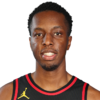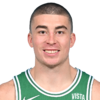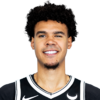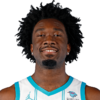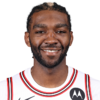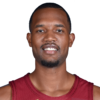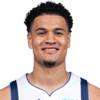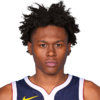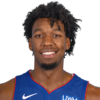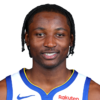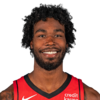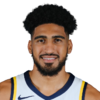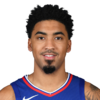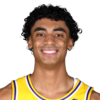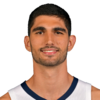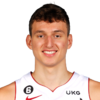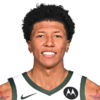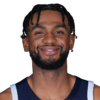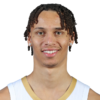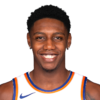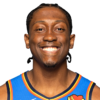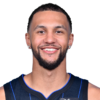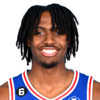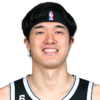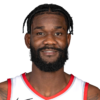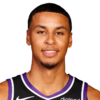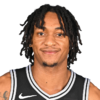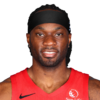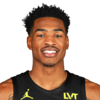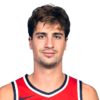Ranking all 30 NBA offenses: Why the Nuggets, Bucks and Suns stand out from the pack
The Kings had the most efficient offense in NBA history last season
[IMG alt=" Sam Quinn
"]https://sportshub.cbsistatic.com/i/r/2019/08/03/ef7f01f6-54ea-472e-86b3-0f2cebdcdb8e/thumbnail/80x80/1ddfb380392cd6f2561cb492fe649a2b/sam-quinn-500.png[/IMG]
By
Sam Quinn
Oct 19, 2023 at 8:00 am ET•29 min read
The
Sacramento Kings had the most efficient offense in
NBA history last season when they averaged 118.6 points per 100 possessions.
De'Aaron Fox and
Domantas Sabonis are All-Stars, but I think most readers would agree that they are far from the most talented offensive duo the league has ever seen. So how did Sacramento not only lap the 2023 field, but the entirety of league history last season?
Well, some factors were somewhat inevitable. Offense has grown significantly more efficient league wide over the past several seasons. Sacramento broke a record that had previously been set by the 2020-21
Brooklyn Nets at 117.3 points per 100 possessions, who themselves broke a record that had been set by the 2019-20
Dallas Mavericks at 115.9 points per 100 possessions. Someone was going to break Brooklyn's record, but why the Kings, specifically? The Kings stood out in five areas:
- The Kings ranked sixth in the NBA in 3-point attempts per game (37.3).
- The Kings ranked seventh in the NBA in fast-break points per game (14.9).
- The Kings ranked seventh in the NBA in free throw attempts per game (25.1).
- The Kings ranked fourth in the NBA in passes per game (299.3) and third in potential assists (49.7).
- The Kings were by far the healthiest team in the NBA last season. All five of their starters missed fewer than 10 games. They used the same starting lineup of Fox, Sabonis, Kevin Huerter, Keegan Murray and Harrison Barnes in 61 of their 82 games and that lineup played 900 total minutes. Only two other lineups even reached 600 last season.
So what is the message here? Notice that these numbers emphasize process over results. The Kings were a pretty good shooting team from both the line and from deep... but they were great at just getting those shots in the first place. They forced the issue in transition when they could for easy baskets and they moved the ball to create better looks. The Kings may not have been the best team in the league in any of those areas, but they were among the best in all of them and they almost always had all of their best players at their disposal. That, more than anything, led to their offensive success.
And it's the biggest measure we'll use to rank this season's 30 offenses before opening night. These rankings are not solely based on sheer talent. They will account for depth, durability, shot profiles and coaching track records. We are attempting to predict where all 30 teams will ultimately rank when the dust settles in April, not how they look on paper today. With that in mind, let's begin:
What they'll do well: They have the best offensive player in the world (
Nikola Jokic). That player has never played fewer than 69 games in a season (and only fell below 70 last year because of how quickly Denver clinched home-court advantage). They're bringing back all five starters, giving them a significant continuity advantage on almost every other elite offense. They were the only team in the NBA last season to finish in the top-five in 3-point percentage (fourth), points in the paint (fourth) and fast-break points (fifth). Rookie
Julian Strawther is shooting a blistering 45.2% on nearly eight 3-point attempts per game in the preseason, giving this bench the sharpshooter it has largely lacked.
Where they'll struggle: Depth was an issue even with
Bruce Brown and
Jeff Green on the roster. Both are gone now. Brown was the de-facto backup point guard last season, and if Denver had much faith in
Reggie Jackson to replace him, they likely would've given him real playoff minutes. The offense has declined by an average of 16.7 points per 100 possessions with Jokic on the bench over the past three seasons, and they haven't solved the backup center problem.
Jamal Murray is in just his second season back from a torn ACL, while
Michael Porter Jr. remains a significant injury risk.
What they'll do well: The Damian Lillard-Giannis Antetokounmpo pick-and-roll is going to be unguardable. Build a wall for Antetokounmpo and Lillard will take a dozen pull-up 3's every night. Blitz Lillard and Antetokounmpo has a numbers advantage for the first time in his career. The decision to start
Malik Beasley indicates that this team is prioritizing points above all else. The shooting depth is incredible as almost every member of the rotation is at least decent from deep. Most are a good deal better.
Brook Lopez can still get you some post-up points, and
Khris Middleton is overqualified as a third option.
Where they'll struggle: Everyone is old. Lillard is 33. Lopez is 35. Middleton is 32 and played only 33 games last season (and not especially well by his standards). Mike Budenholzer was one of the best regular-season offensive coaches in basketball. How much of his system will Adrian Griffin replicate? Is
Cameron Payne a viable backup point guard when he isn't sharing minutes with
Devin Booker or
Chris Paul? Phoenix lineups featuring Payne and neither of his more famous backcourt-mates ranked in just the 20th percentile in offense last season, according to Cleaning the Glass.
What they'll do well: Death by 1,000,000 mid-range jumpers. Last year's Nets (led partially by
Kevin Durant!) hold the 21st century record for mid-range field goal percentage as a team at 48.9%, and the 2021 Suns (led by Devin Booker!) are in second place at 47.4%. Now Durant and Booker have a whole season together, and
Bradley Beal is along for the ride. The bench has plenty of flaws, but between
Grayson Allen,
Eric Gordon and
Damion Lee, there is plenty of shooting.
Jusuf Nurkic is among the most annoying screeners in basketball for opposing defenders and injects sorely needed high-post playmaking. It's a tiny sample, but no team generated more fast break points per game in last year's playoffs than the Suns with Durant and Booker (18.3).
Where they'll struggle: The Suns ranked last in restricted area shots last season. Durant barely played for them, but his Nets ranked 26th and Beal's
Wizards ranked 23rd. Is this team going to get to the rim consistently? A lot of minutes are going to be allocated to designated defenders like
Josh Okogie and
Keita Bates-Diop. How will that impact spacing for the stars? How often will the stars even be on the floor? Durant has played in 58% of his team's games over the past three seasons and Beal is at around 64%. Nurkic is at 49% over the last four seasons.
What they'll do well: No coach emphasizes 3-pointers to the degree that Joe Mazzulla does. Boston jumped from ninth to second in attempts per game last season.
Jayson Tatum and
Jaylen Brown had down shooting years, but the rest of their core six all shot at least 38% last season, and key reserves
Sam Hauser and
Payton Pritchard should be in that range as well. Assuming they stagger their best players properly, they'll always have at least two All-Star-caliber players on the floor.
Where they'll struggle: Boston never gets to the line. The Celtics ranked 28th in free throw attempts last season. They rarely get to the rim either, ranking 23rd in paint points a season ago. Their offseason changes will help on both fronts, but these are still relative weaknesses for the Celtics. When their shots go in, they'll be unbeatable. When they don't? Well, let's see what else this team has up its sleeve.
5. Sacramento Kings
What they'll do well: Everything they did well last year, which, as we covered above, is basically everything. There's no reason to believe Sacramento will suffer major injury issues this season. They remain pretty good at just about every element of offense. They've improved their shooting slightly by adding
Chris Duarte and EuroLeague MVP Sasha Vezenkov. Their roster is still relatively young with room for internal growth. Fox's speed and Sabonis' incredible screening are still a lethal combination.
Where they'll struggle: They probably aren't going to be 10 points per 100 possessions better in clutch situation than the rest of the league this season because clutch performance tends to be somewhat random if your point guard isn't Chris Paul. Even if they don't suffer major injuries, they'll likely have a few more dings and bruises. They won't sneak up on anyone this year.
6. Dallas Mavericks
What they'll do well: Do you like dribbling? Then, boy, do I have the offense for you.
Luka Doncic led the NBA in isolation field goal attempts per game (5.5) and
Kyrie Irving ranked sixth (4.1). Fortunately, they're both quite good at individual shot-creation. as each topped 1.1 points per possession in isolation last season and nearly did so in pick-and-roll as well. Lineups featuring the pair of them rated in the 94th percentile in terms of offensive efficiency, according to Cleaning the Glass. Dallas ranked third in the NBA in 3-point attempts last season, and after adding
Seth Curry and
Grant Williams they may even be better from deep this year. They didn't sacrifice from the line to get all of those 3's either, as they ranked fifth in the NBA in free-throw attempts.
Where they'll struggle: Are they really going to start a rookie center in Dereck Lively? Jason Kidd yanked
Christian Wood's minutes around last season because he didn't trust him on defense. Will he do that to anyone this season? Dončić has played 70 games only once in his career. Irving's durability concerns speak for themselves, so does the drama that tends to follow him everywhere he goes. Is there any shot-creation beyond the top two? That largely depends on Curry's health after ankle issues ruined his previous season and whether or not Kidd is willing to give
Jaden Hardy room to grow on the floor.
What they'll do well: The only team that attempted more 3's than Boston last season was Golden State, and only the
76ers made a higher percentage of their 3's than the Warriors. Bench offense has been a weakness throughout the
Stephen Curry era, with the Warriors scoring an average of 13.6 fewer points per 100 possessions with him on the bench during his eight healthy seasons under Steve Kerr. Chris Paul is an ideal solution to this problem. He'll be able to run a competent regular season pick-and-roll as long his body remains upright. Preseason
Jonathan Kuminga has been incredible. The wasted
James Wiseman minutes are gone, the infuriating
Jordan Poole turnovers are gone and Golden State leads the NBA in passes almost every year.
Where they'll struggle: They're older the Bucks and as injury-prone as the Suns.
Draymond Green already has a sprained ankle. Their shot-selection issues are perhaps even more pressing than Phoenix's, as last season's roster, which is fairly similar to this season's, ranked last in free throw attempts and 28th in restricted area shot attempts. Someone out of Curry, Green, Paul,
Klay Thompson,
Andrew Wiggins and
Kevon Looney is coming off of the bench. How will that affect team chemistry? Can Paul, who holds the ball longer than almost anyone in the NBA, conform to a style that relies on frequent movement and passing? Meanwhile, Thompson, Kuminga and
Moses Moody are all playing for contracts.
What they'll do well: Trae Young's last three offenses have ranked seventh, second and ninth. Quin Snyder's last three full seasons of offense have ranked first, fourth and ninth, respectively. Pair arguably the NBA's best regular-season pick-and-roll operator with arguably the NBA's best regular-season pick-and-roll offense designer and you're going to get a pretty good offense.
Dejounte Murray is a solid secondary creator in that context, but his mid-range game will be an even more valuable change of pace on a roster that will finally have the green light to fire all of the 3's Nate McMillan didn't let them take.
Where they'll struggle: Atlanta's shot-selection will likely improve significantly under Snyder, but this is still a team that relies heavily on Young's floater and Murray's overall mid-range game. The Hawks don't have Phoenix's talent or shooting depth. They're going to have to find ways to get to the rim and get to the line.
Clint Capela spent the offseason in trade rumors. If he does eventually get dealt to make way for
Onyeka Okongwu, the Hawks will badly miss his offensive rebounding.
Bogdan Bogdanovic has averaged only a bit more than 50 games per season as a Hawk and is almost always banged up with something.
What they'll do well: The Pacers were the NBA's best transition offense last season, and the addition of
Obi Toppin should make them even better. The former Knick averaged over 20 points per game as a starter in New York, but only started 15 games in three years. No big man in the NBA runs the floor better than he does, and
Tyrese Haliburton is going to give him several clean lobs per game. Indiana ranked seventh in the NBA in both 3-point and restricted area attempts last season, and Rick Carlisle teams always emphasize high-efficiency shots. Benedict Mathurin hit the rookie wall last season, but if he takes a step, his aggressive driving game meshes perfectly with Haliburton's finesse.
Where they'll struggle: There isn't a traditional late-clock shot-creator here, so when their gorgeous transition game is forced to slow down, they're going to encounter some problems. The Pacers ranked just 24th in half-court points per play last season, and even with some improvement, that likely isn't a strength.
Buddy Hield is due an extension and was in trade rumors earlier this offseason when a deal wasn't struck. His shooting is very valuable here.
10. New York Knicks
What they'll do well: New York is, ironically, Indiana's opposite. The Knicks were one of the NBA's slowest teams last year, but made up for it by generating the second-most points per possession in the half-court.
Jalen Brunson and
Julius Randle are incredibly reliable regular-season shot-creators, and are annoying to game-plan against because of how rare their playing styles are. Brunson's craft distinguishes him from the speed and shooting range of most high-end pick-and-roll point guards, and Randle's strength and touch make him more versatile than most bigs. The Knicks replaced Toppin with
Donte DiVincenzo, adding badly needed shooting and practically forcing Tom Thibodeau to play more small lineups. The Knicks run one of the NBA's tightest rotations, rarely allocating any minutes to players outside of the core rotation. That's not ideal for player-development, but great for maintaining consistent performance.
Where they'll struggle: The roster practically demands small-ball, at least out of bench units. Will Thibodeau oblige? He rarely has. The Knicks improved their shot-selection significantly last season, but were still somewhat mediocre when it came to scoring near the rim. That's the sort of spacing problem teams that start multiple big men face, and, quietly,
Josh Hart doesn't get guarded much from deep either. There's not nearly enough ball-movement here, as New York ranked 22nd in passes per game. DiVincenzo will help a bit on this front, but too much of this offense simply boils down to two players in Randle and Brunson creating their own looks.




